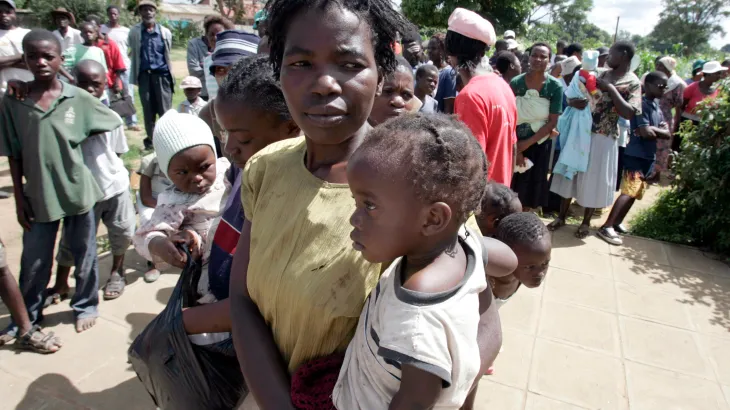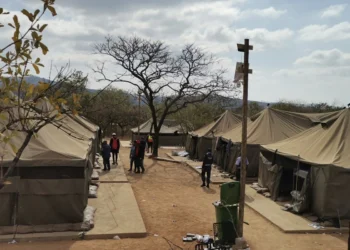Zimbabwe is grappling with a severe cholera outbreak that has surged to alarming levels. As the disease continues to spread, health authorities and humanitarian organizations are racing against time to contain its deadly impact.
The outbreak, which began in Buhera District, Manicaland, in February 2023, has now engulfed 45 out of 62 districts across the country. Since then, the numbers have steadily risen, affecting all ten provinces.
The situation has become particularly dire in the south-eastern provinces of Masvingo and Manicaland, where the spikes in cases are most alarming.
More than 25,780 cases of cholera have been recorded nationwide since the epidemic began last year.
Several factors have contributed to the severity of the outbreak. Zimbabwe’s aging sewage system, a relic of its colonial past, has struggled to cope with the country’s population growth.
From approximately 3.7 million in 1960, the population has surged to 17 million today. Potable water remains scarce in many regions, exacerbating the crisis.
In the capital city, Harare, many residents live in close quarters, and hygiene measures are often inadequate.
The Zimbabwe Red Cross Society (ZRCS) and other aid organizations have been on the front lines, working tirelessly to combat the outbreak.
Zimbabwean authorities are actively distributing vaccines to mitigate the effects of the epidemic.
As of February 12, the country had received 97 percent of the 2.3 million doses approved by the International Coordinating Group on Vaccine Provision (ICG), with additional doses expected later this month.
UNICEF reported that as of February 14, 1.5 million individuals, constituting 67 percent of the target population, had received a dose of the oral cholera vaccine (OCV).
However, there are concerns that the mitigation efforts are coming too late and just as importantly, do not tackle the source of the problem.
Persistent Potable Water And Sewage Treatment Issues

Joyleen Nyachuru, a resident of Glen View and a community water alliance leader, is one of them. She blames local and central governments for the latest epidemic.
Nyachuru said, “They could have done more to minimize the impact of cholera on residents by coming together to contain raw sewer leaks and should have worked together to upgrade the old sewer infrastructure that continues to break down.”.
“In Glen View, we have 12,800 houses and each house has four to five households. This means each house houses 15 to 20 people using the same house and the same toilet,” she said, adding that the authorities need to provide clean potable water to every resident of the city to curb cholera.
For years, numerous households in Harare have been deprived of regular water supply from the city. Presently, in most southern suburbs, water only flows through the taps once a week.
Despite the government’s intervention, street corners in the city continue to be marred by the common presence of rubbish.
This, according to Nyachuru, has also compounded the cholera situation.
Precious Shumba, director of the nonprofit Harare Residents’ Trust agrees.
“The major problem is that underground water and sewerage pipes are aged and sand blocked, resulting in numerous leakages along the water and sewerage infrastructure network,” Shumba said, adding that sewer bursts in industrial areas of the city also stay unfixed for long periods.
However, Harare Mayor Jacob Mafume stated that alongside the vaccination program, city authorities have ramped up efforts to repair sewers and are actively enhancing the supply of clean drinking water to the city.
But his remarks failed to reassure most residents of the city, who expressed that they had grown accustomed to dealing with sewage issues on their own solutions.
“On the ground, the authorities are doing nothing … when the city says it will fix or is fixing our problems, it’s only fiction,” Nyachuru said. “They [officials] were only on the ground during the Chenesa Harare campaign. After the campaign, nothing has been happening.”
READ ALSO: Sudanese Refugees Endure Long Wait In Crowded South Sudan Camps





















